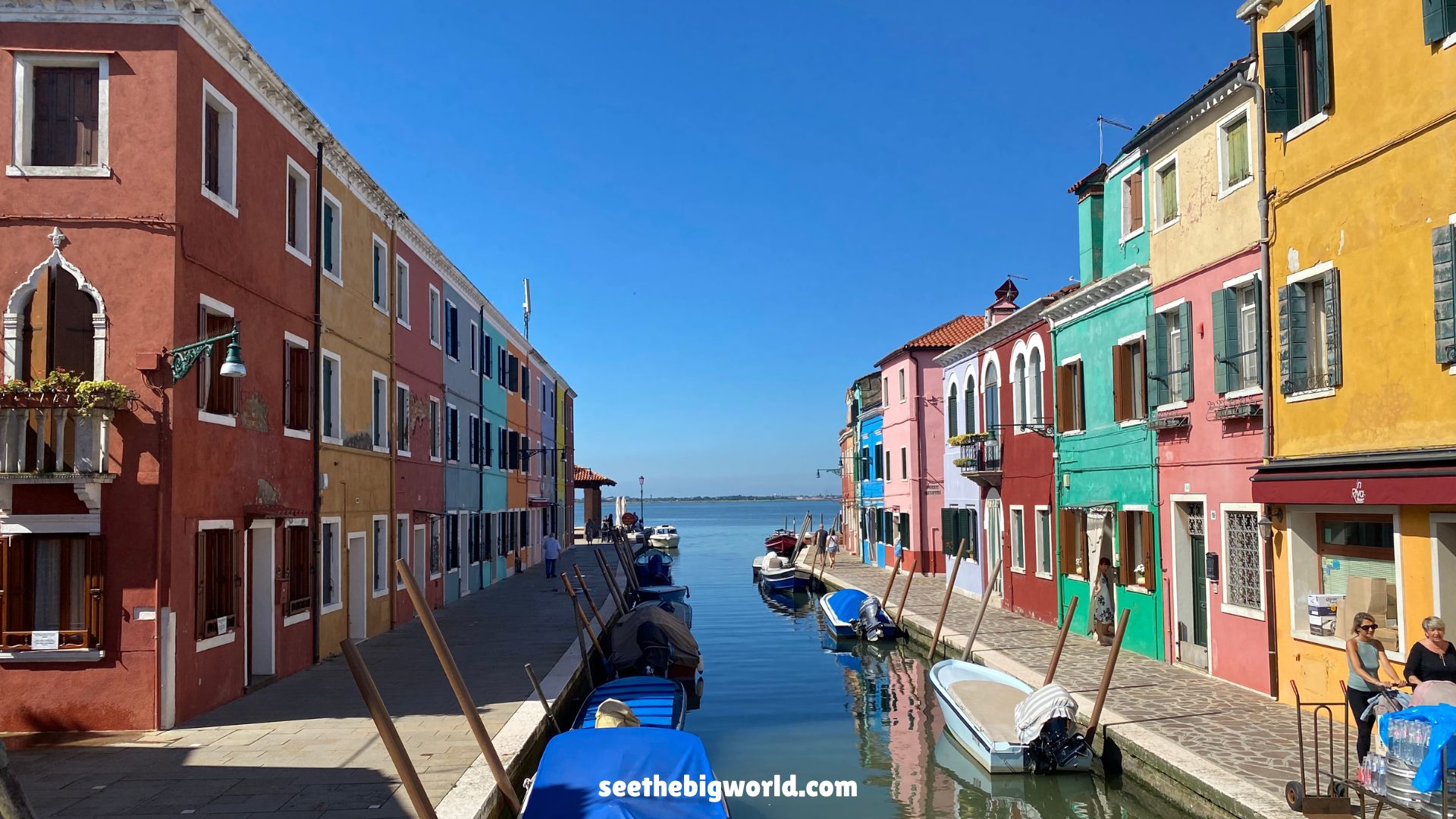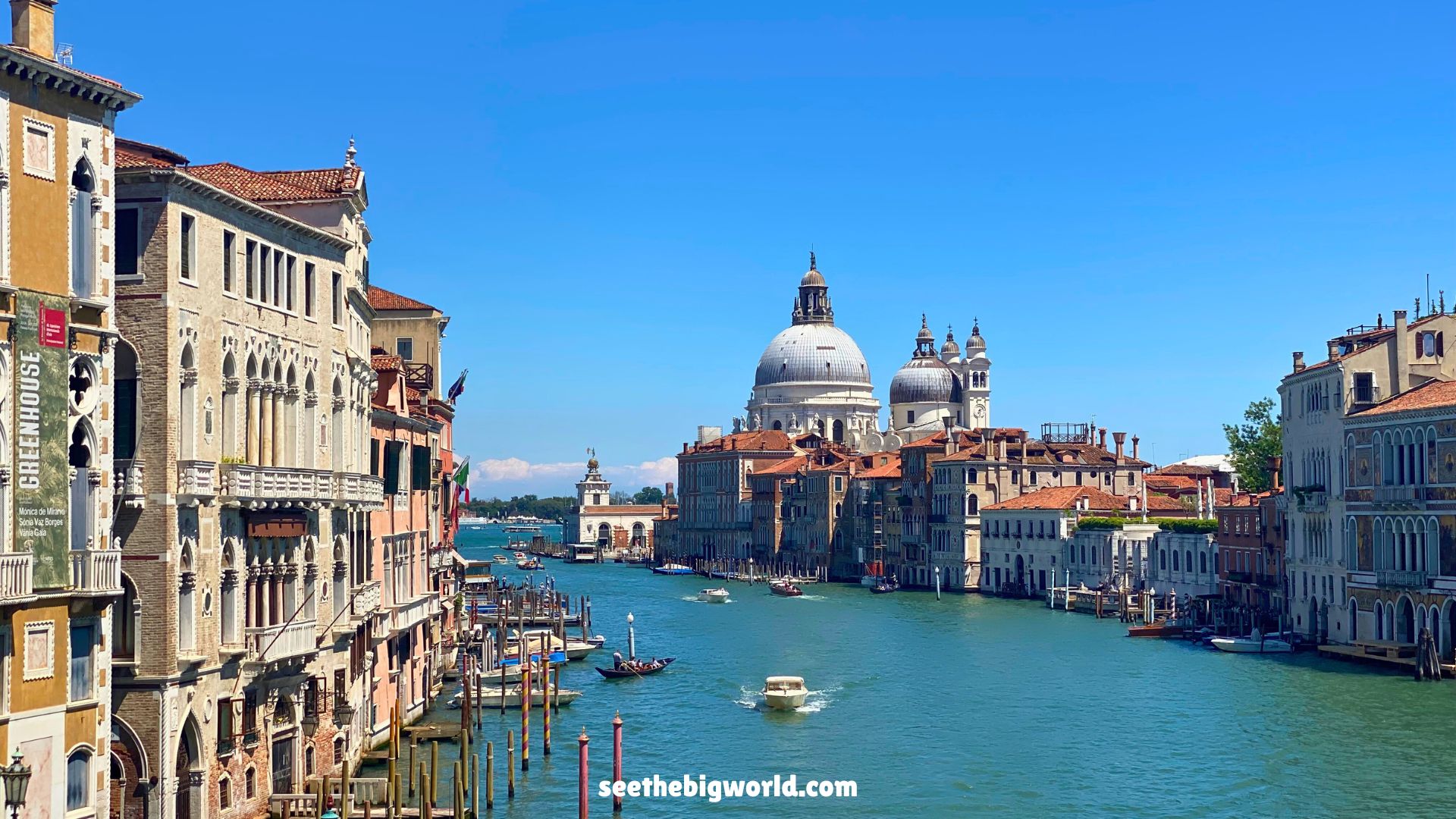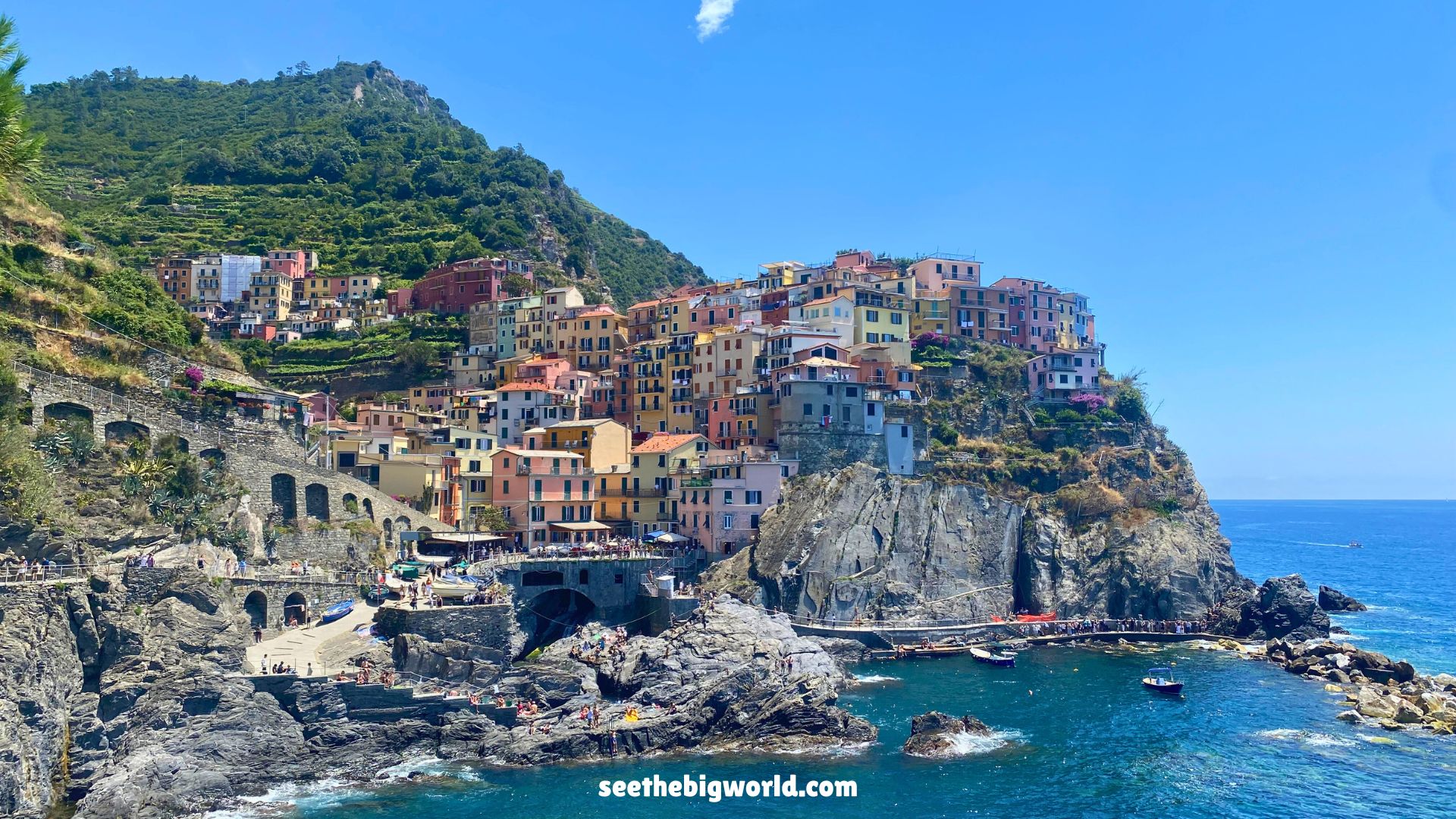Updated on 22/12/2025 | Published on 09/01/2025
Milan Cathedral (Duomo di Milano) is the city’s most iconic landmark and one of the most impressive Gothic churches in Europe. Even if you only have a few hours in Milan, this cathedral is the one attraction you shouldn’t skip. This guide covers everything you need to plan a smooth visit: ticket options (including rooftop access), the best time to visit, how to get there, must-see highlights, and practical tips based on my own experience.
Milan Cathedral (Duomo di Milano) Fast Facts
- How to Get There:Metro Line M1 (Red) or M3 (Yellow) to Duomo Station (exit immediately at the cathedral)
- Opening Hours:Daily 09:00 – 19:00 (Last entry approx. 18:10); Museum 10:00 – 19:00 (Closed Wednesdays)
- How Long to Spent:Allow 2–3 hours for the full experience (Cathedral interior + Rooftop + Museum)
- Tickets:Check latest prices & booking
- Rooftop by Lift: Highly recommended! Small price difference (approx. €6) but saves significant energy; note that the queue is separate from the stairs.
- Rooftop by Stairs: Requires physical climbing; suitable for budget travelers with good stamina.
- Skip-the-Line: Essential for this major landmark to avoid long waiting times.
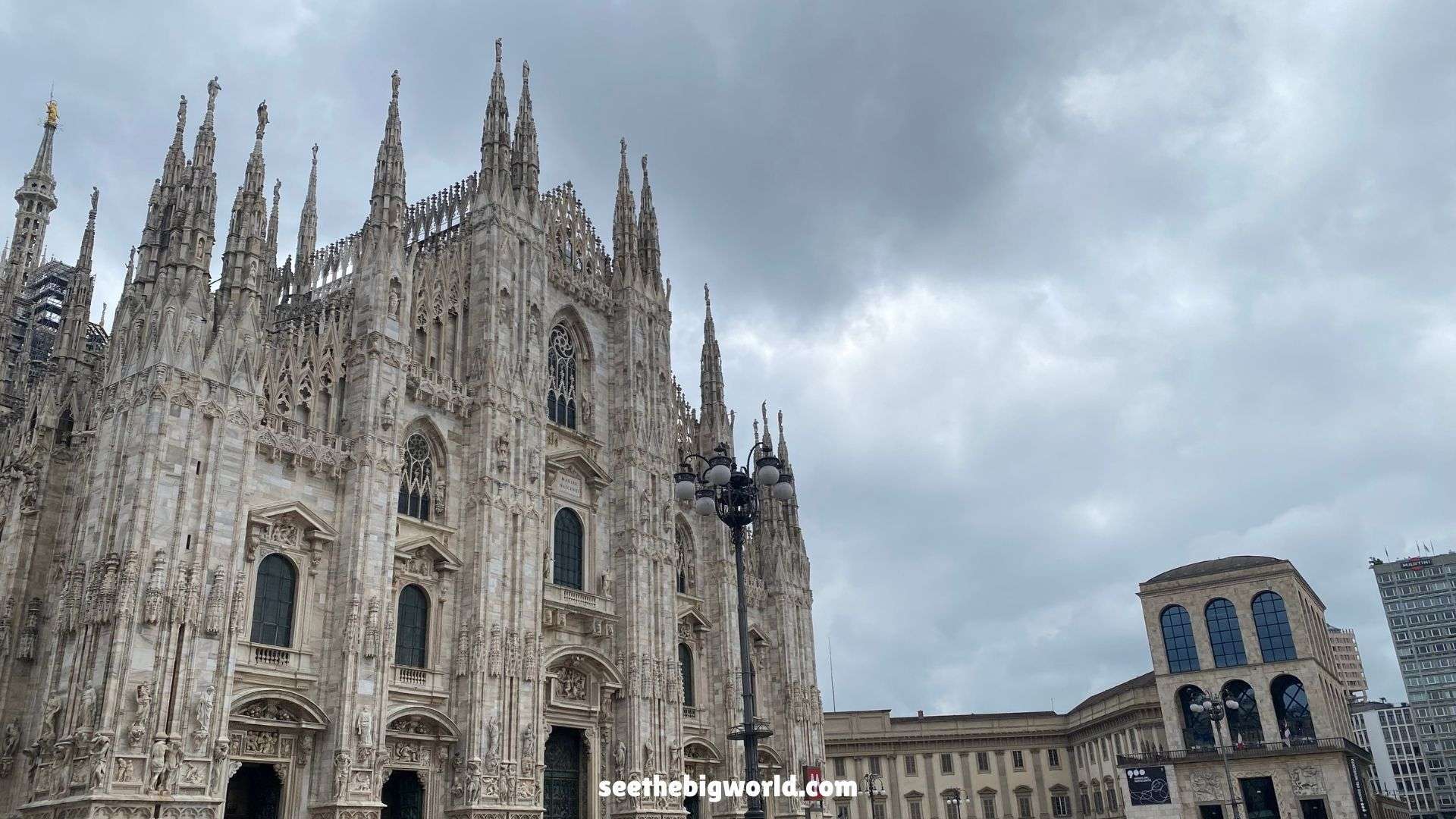
Why Should You Visit Duomo di Milano? (History and Features)
The Milan Cathedral, one of the largest Gothic cathedrals in the world, began construction in 1386 and was finally completed in 1965, after nearly 600 years. This magnificent structure combines Gothic and Baroque architectural styles, showcasing the pinnacle of Renaissance art.
- Gothic Spires:The pure white marble façade is adorned with 135 intricately carved spires, reaching a height of 108.5 metres. At its peak stands the 4.2-metre-tall gilded statue of the Virgin Mary (Madonnina), a symbol of Milan.
- Baroque Lower Section:The lower portion of the cathedral features ornate Baroque carvings, exuding timeless elegance and resembling a colossal sculptural masterpiece.
- Interior:Known for its spacious design, Gothic vaulted ceilings, and stunning stained glass windows, the interior vividly illustrates biblical stories in vibrant detail. It also houses numerous exquisite stone carvings, including biblical reliefs, statues of saints, and symbolic motifs.
- Piazza del Duomo:In front of the cathedral lies the main square, home to the statue of Victor Emmanuel II, the first king of a unified Italy, adding historical and artistic depth to the city.
Duomo di Milano Review / Experience
I almost missed Milan on my Northern Italy trip, thinking I wasn’t into shopping, so I initially skipped it. However, the journey from Cinque Terre to Venice was too long, and I had an 8-hour layover in Milan, so I decided to check it out.
I’m so glad I did! The Milan Cathedral is now my favourite cathedral, even surpassing St. Peter’s (which was undergoing maintenance when I visited). Even though I’m not religious, the stained glass inside left me in awe. The best part? Compared to other traditional cathedrals, getting to the rooftop is much easier. There’s an elevator straight to the top, and the space is so spacious, perfect for taking your time to capture every beautiful angle.

However, I have to share a painful lesson about tickets and queuing, along with a bit of drama that unfolded on the day.
I had paid the extra €6 for the "Lift" (Elevator) ticket to save my legs. In the chaos of arrival, I foolishly joined the wrong queue—the one for the "Stairs". By the time I realised my mistake and switched to the correct line, I had wasted about 15 minutes. Pro tip: Check the signs carefully; the lift and stair queues are completely separate!
Then came the real drama. Just as I reached the front of the lift queue, there was a commotion. It turned out the group immediately before us had been stuck inside the elevator for a solid 30 minutes! It sounds terrifying, but perhaps they used up all the bad luck, because my ride up was perfectly smooth. It serves as a reminder that while the lift is convenient, if you are fit and want to avoid any mechanical risks, taking the stairs is a very solid backup plan.
That said, once you get up there, every bit of hassle is worth it. Unlike the claustrophobic spiral staircases or tiny viewing platforms typical of many European churches, the Duomo’s rooftop is incredibly spacious. You can wander around freely, get right up close to those intricate spires, and take your time with photos. That sense of open space and the ability to "walk on the roof" is exactly why I think the rooftop ticket is non-negotiable.
Highlights of Duomo di Milano (Multiple Images)
1. Gothic Upper Section and Rooftop Terrace
The upper part of the Duomo is a masterpiece of Gothic architecture, with 135 soaring spires, each adorned with sculptures. The most famous of these is the statue of the Virgin Mary (Madonnina) atop the central spire. The overall design of the cathedral emphasises vertical lines, creating a light and upward-reaching visual effect, symbolising humanity’s pursuit of the divine. The flying buttresses and intricate stone carvings between the spires showcase the delicate craftsmanship and beauty of Gothic architecture
The Duomo is one of the most worthwhile European cathedrals to visit, particularly for its spacious rooftop terrace, where visitors can enjoy a close-up view of these spires and sculptures in stunning detail.






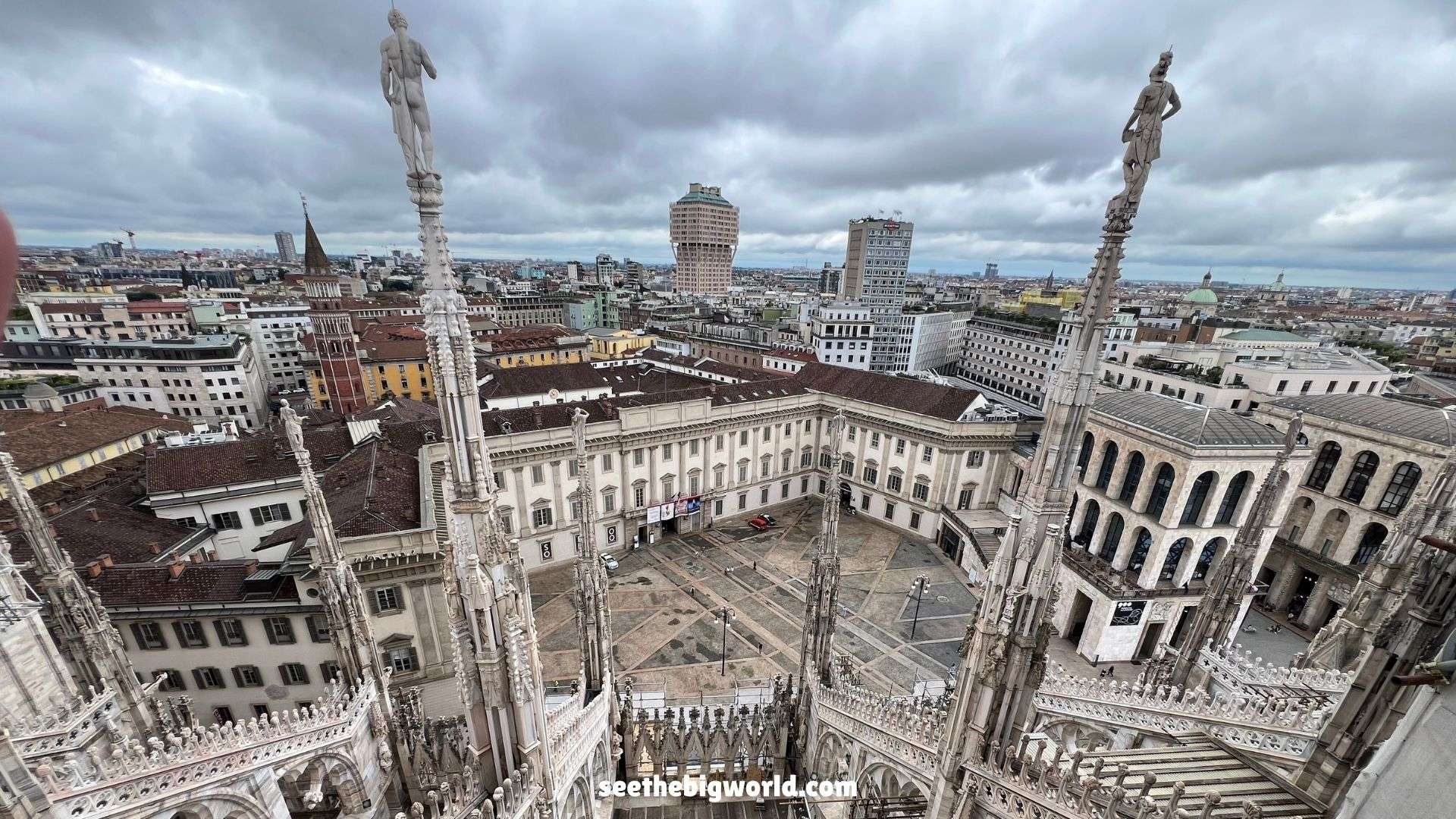
2. Baroque-style Lower Section
The lower part of the cathedral, particularly around the main entrance, is heavily influenced by Baroque style, with rich and elaborate carvings. The massive sculpted doors at the entrance depict significant Biblical scenes, with many statues and reliefs that bring to life the Baroque period’s characteristic dramatic and dynamic style. The blend of styles in the upper and lower sections makes the Duomo a truly unique architectural treasure.
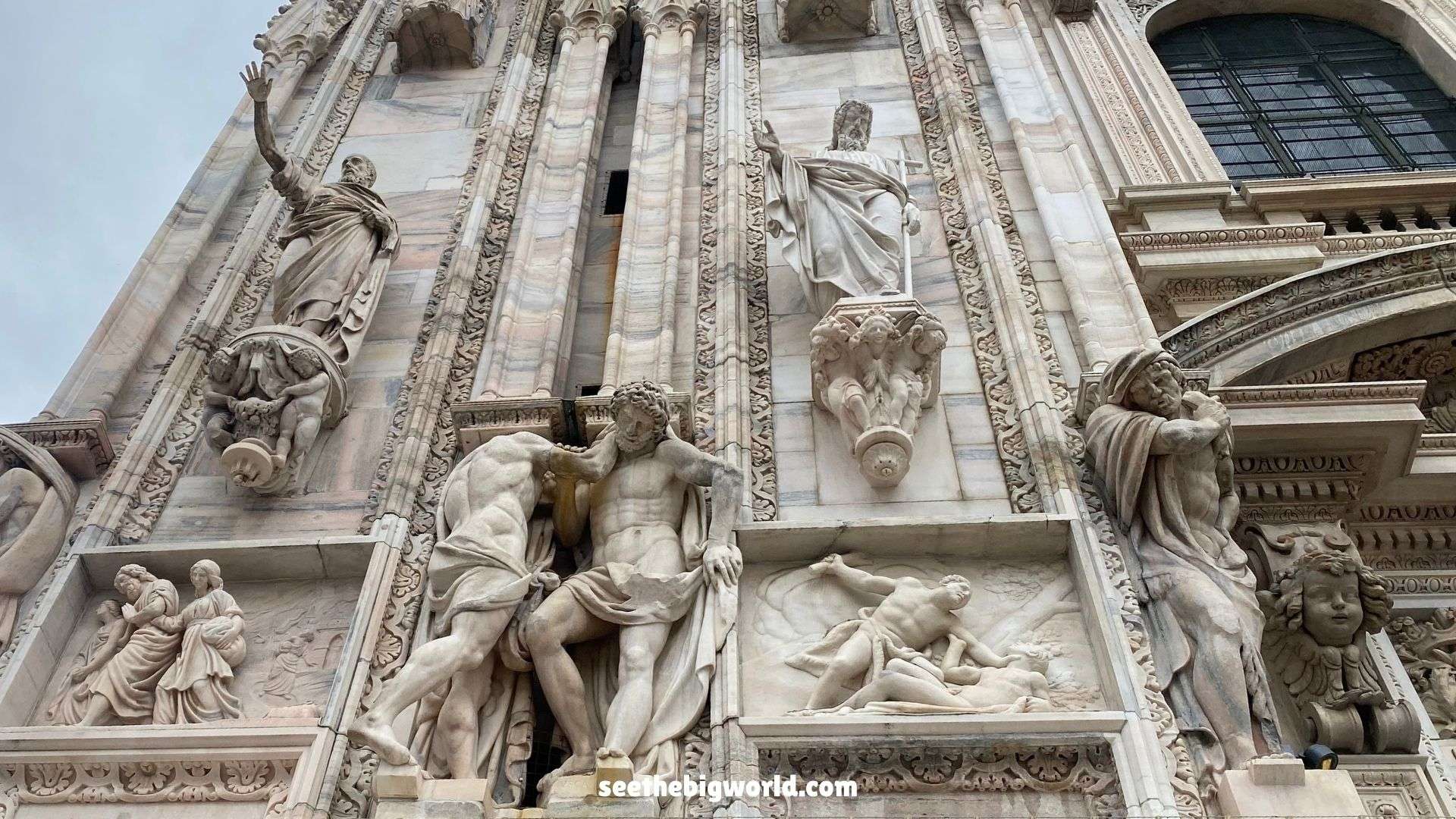
3. Gothic Vaulted Ceiling
Stepping inside the cathedral, the first thing that catches the eye is the grand Gothic vaulted ceiling, which reaches a height of 45 metres, giving a feeling of awe. The ceiling’s structure is layered, with each column’s capital carved in unique detail, symbolising humanity’s diversity and devotion in religious faith. Light pours in through the ceiling and stained glass windows, creating a sacred and solemn atmosphere.
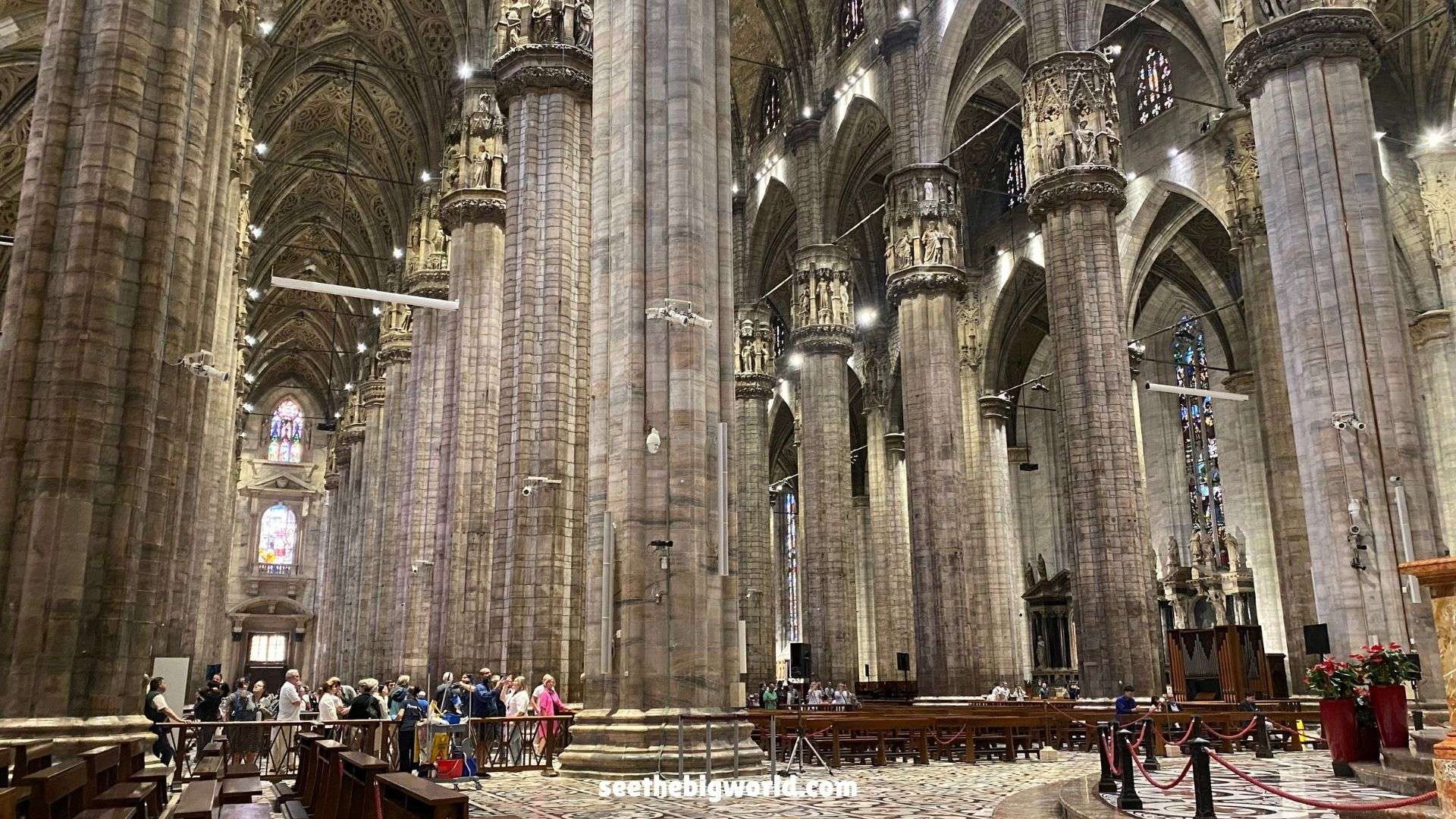


4. Stained Glass Windows
The stained glass windows of the Duomo are considered works of art, with 55 large windows depicting various scenes from the Bible. The vibrant colours and depth of these windows not only record religious stories but also reflect the artistic peak of the Renaissance period. Sunlight streaming through the windows illuminates the entire space, providing visitors with a powerful visual experience.



5. Interior Carvings
Inside the cathedral, countless exquisite stone carvings can be found, including reliefs depicting Biblical stories, statues of saints, and symbolic patterns with deep meanings. These works combine religious faith with artistic creation at its peak. Notably, the high altar in the centre of the cathedral is surrounded by carvings of the lives of saints, vividly bringing to life the scenes, making visitors feel as though they are stepping into a medieval artistic sanctuary.

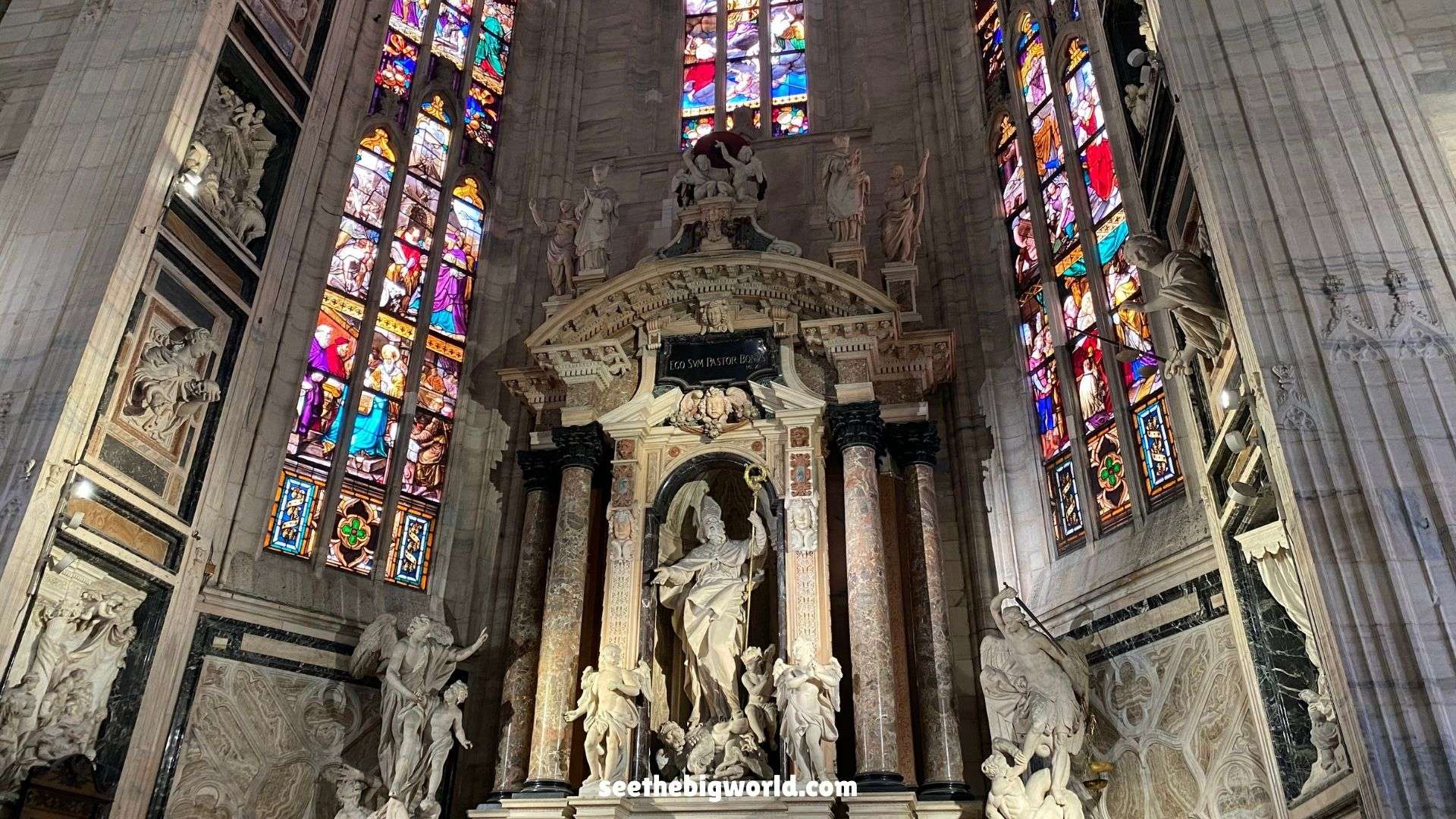

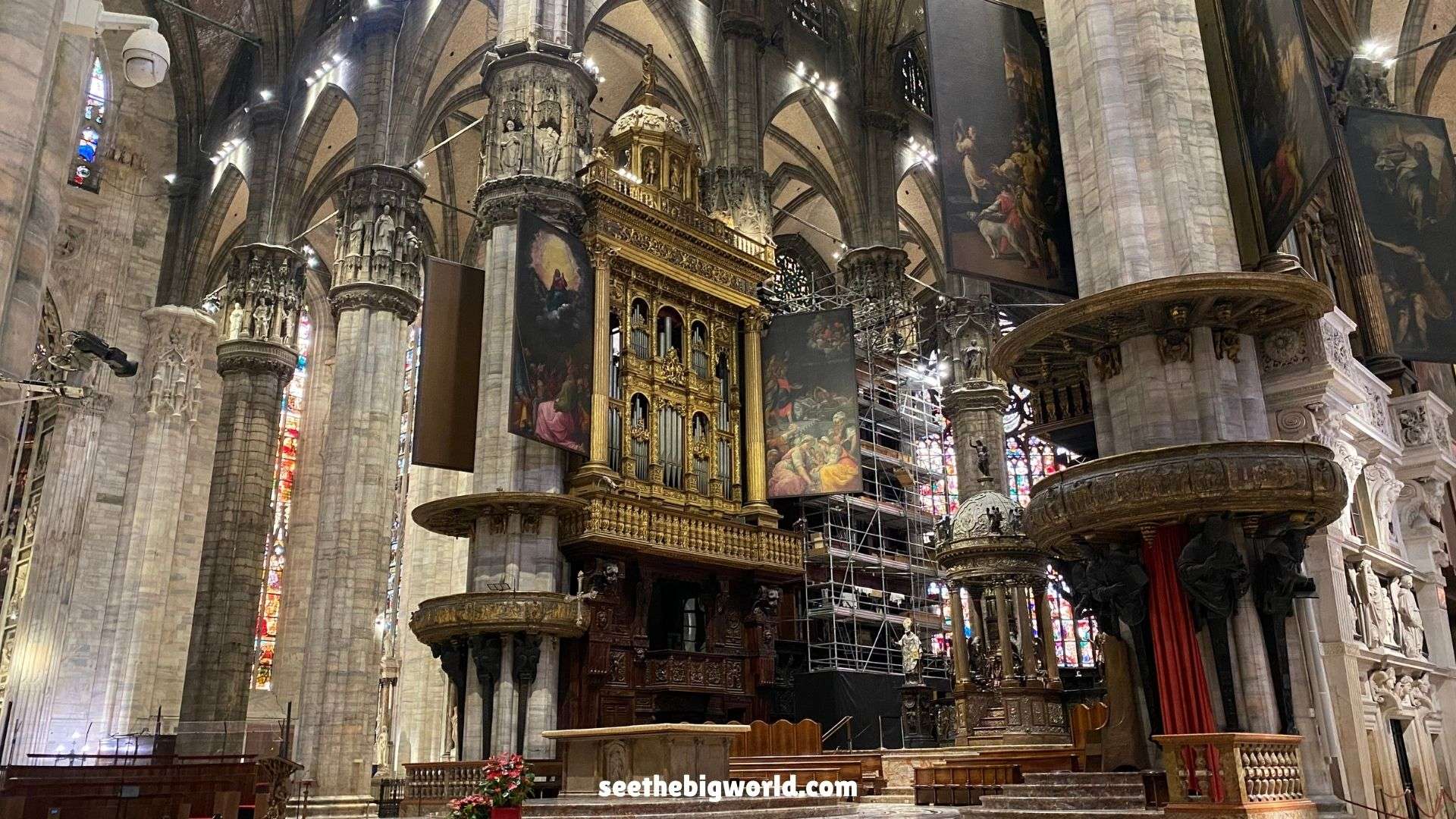



6. Sculptures in the Piazza del Duomo
The Piazza del Duomo in front of the cathedral is also worth exploring, with the imposing equestrian statue of King Vittorio Emanuele II at the centre, commemorating the king who unified Italy. This statue is a popular backdrop for photographs. Surrounding the square are numerous cafés and shops, making it a great spot to relax and experience the local Milanese life.

Read More
City Guides:Rome|Milan|Florence|Venice|Cinque Terre
Rome Articles:Colosseum|Pantheon|Spanish Steps|Trevi Fountain|Vatican Museums|St. Peter’s Basilica
Milan Articles:Duomo di Milano|Galleria Vittorio Emanuele II|The Last Supper
Passes:Euro Train Pass|Roma Pass|Omnia Card
Colosseum:Get Your Guide|KLOOK
Vatican Museums:Get Your Guide|KLOOK
Duomo di Milano:Get Your Guide|KLOOK
Florence Cathedral:Get Your Guide|KLOOK

